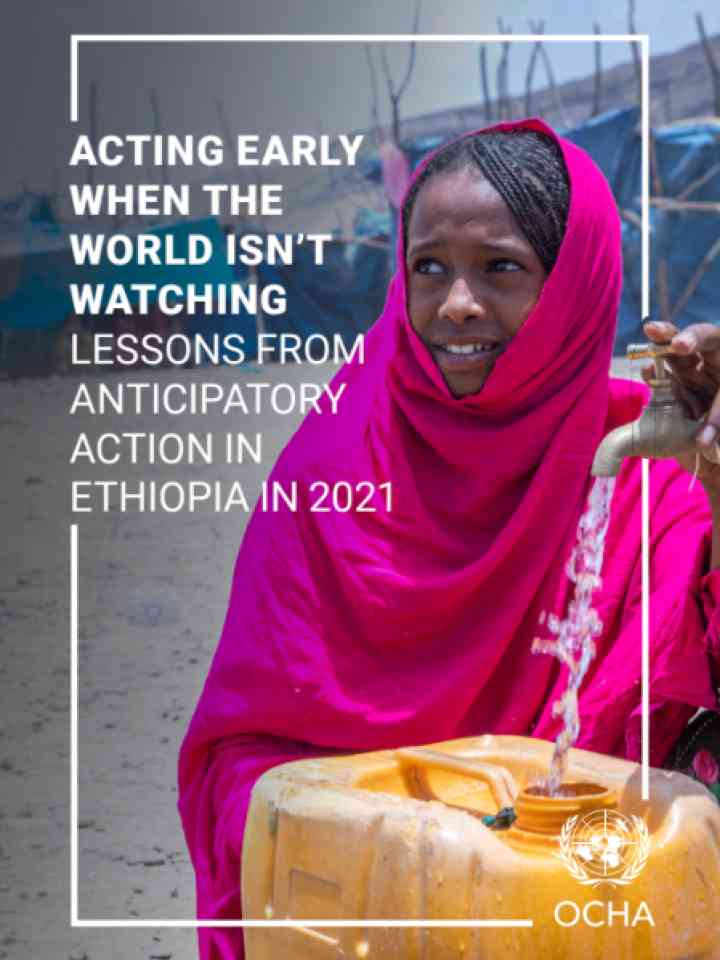Acting early when the world isn’t watching: Lessons from anticipatory action in Ethiopia in 2021
This report offers a deeper view into the results of OCHA's anticipatory action framework and valuable lessons to improve its impact in the context of protracted and overlapping crises. When a country is hit by a slow-moving disaster, such as a drought, it can take months or even years to see the devastating impact.
Between October 2020 and June 2022, Ethiopia experienced five consecutive below-average rainy seasons, with the 2022 March-May season being the driest in 70 years. The drought’s prolonged nature ultimately affected an estimated 17 million people.
But this time there was a glimmer of hope. The humanitarian community acted earlier thanks to the UN Office for the Coordination of Humanitarian Affairs (OCHA) piloting an anticipatory action framework. In December 2020 – earlier than any other donor – OCHA’s Central Emergency Response Fund (CERF) provided US$20 million to humanitarian partners to reduce the drought’s impact on more than 900,000 people.
Explore further
